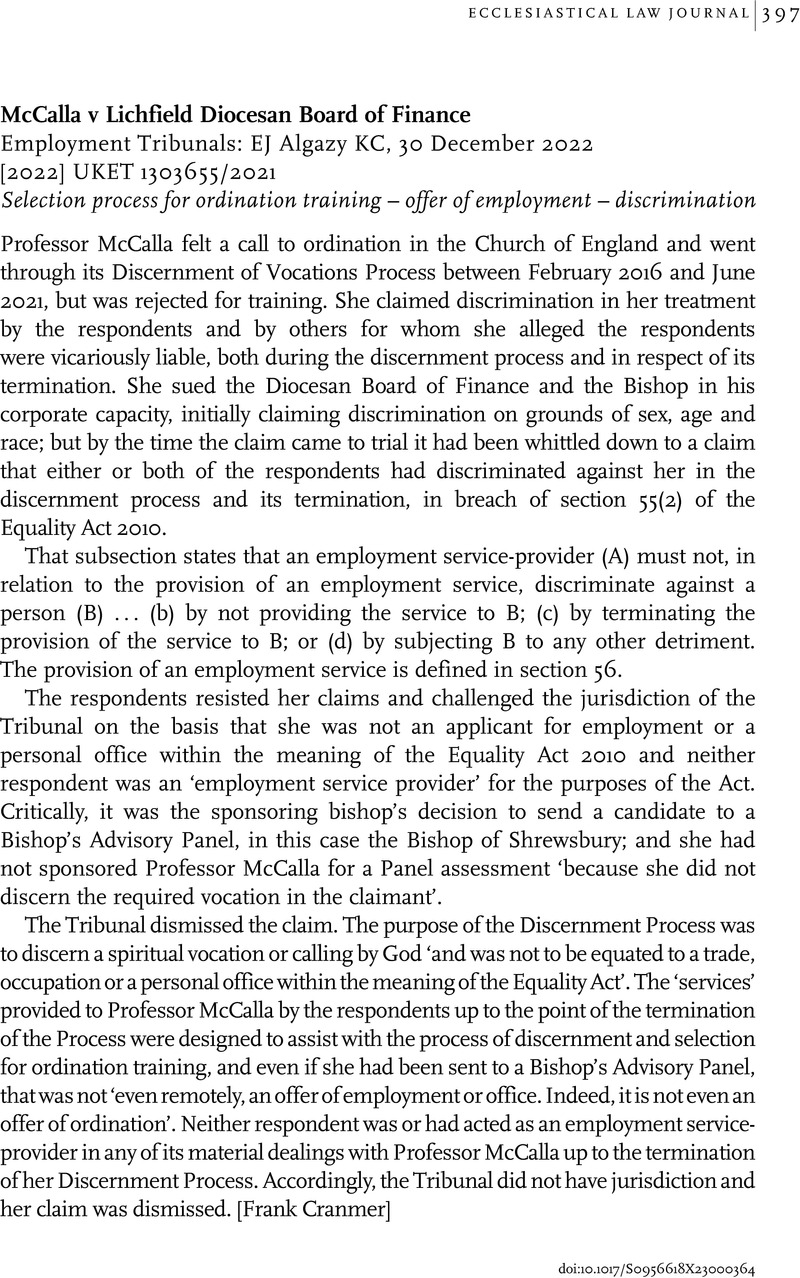No CrossRef data available.
Employment Tribunals: EJ Algazy KC, 30 December 2022[2022] UKET 1303655/2021Selection process for ordination training – offer of employment – discrimination
Published online by Cambridge University Press: 05 September 2023
